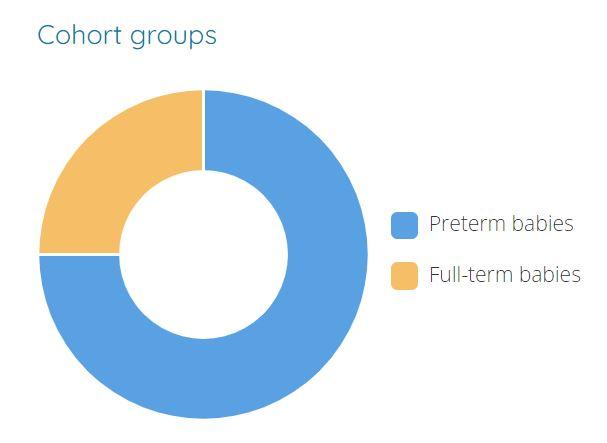Why we are doing the research
The Theirworld Edinburgh Birth Cohort research team and funders are excited about the potential this study has to improve the lives of babies born early, and their families. We hope you will be, too.
Why the research is needed
Across the world, preterm birth (a baby born too early) affects 15 million newborns every year and is an important cause of long-term impairment and disability. Being born too early is a leading cause of: cerebral palsy, low IQ leading to educational under-performance, autism spectrum disorder, attention deficit disorder and mental health problems in adolescence and adulthood.
Although we know that brain growth is altered at a critical point in development by preterm birth, little is known about the development of neurocognitive and mental health problems associated with preterm birth, or the biological, environmental and social risk factors that make them more, or less likely to happen. Furthermore, there are no treatments for preterm brain injury.
The aim of this research
To create Theirworld Edinburgh Birth Cohort (TEBC) as a world-leading research platform for improving life-course outcome after perinatal brain injury caused by preterm birth. We will comprehensively study a unique collection of mothers and infants, and follow children as they grow older, to study the causes and consequences of, and develop novel treatments for perinatal brain injury.
How we plan to do the research

We will recruit and study 400 mothers and infants recruited from the Simpson Centre for Reproductive Health in Edinburgh (300 preterm babies and 100 full term babies) and follow them as they grow up*. The TEBC will pioneer an experimental medicine approach that places patients at the centre of a research journey that encompasses medicine, brain magnetic resonance imaging, biology, education and socio-economics, to deliver new understanding of perinatal brain injury.
What we hope to achieve
The TEBC will (1) identify early life biological and environmental exposures that affect the developing brain; (2) speed up the translation of new treatments for perinatal brain injury to the cotside; (3) deepen understanding of the complex interaction between perinatal events and later environmental influences on long-term brain health / disease; and (4) provide new insights into childhood origins of common adult diseases.
*funding is approved for years 1-5, with expressed intention of funder to support cohort follow-up to adulthood.

